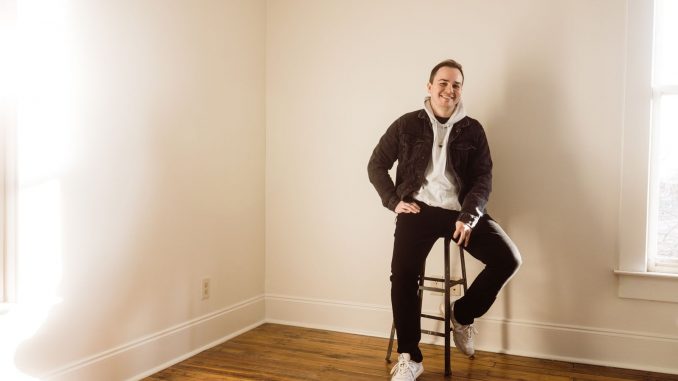
Songs that document the journey to being a man.
Acclaimed singer-songwriter Ruston Kelly helped to persuade his friend, Tommy Prine, that he should pursue a life in music. Subsequently, Kelly, a wise man, indeed, co-produced ‘This Far South’, Prine’s outstanding debut album. Prine has channelled loss, grief and even humour into a collection of compelling songs that are smartly written and beautiful, both musically and lyrically. Some of Prine’s work is emotionally raw and intense, especially when he writes of losing his best friend and, just a few years later, his father. Thematically coherent and musically diverse, it’s a remarkable album that features contributions from some excellent players, including Sadler Vaden, alongside Kelly’s clear and impactful influence. The album follows a couple of well-received singles in 2022, of which ‘Ships in the Harbor’ was particularly intense and affecting. AUK’s Andrew Frolish caught up with Tommy Prine as he neared the end of the UK leg of his long tour.
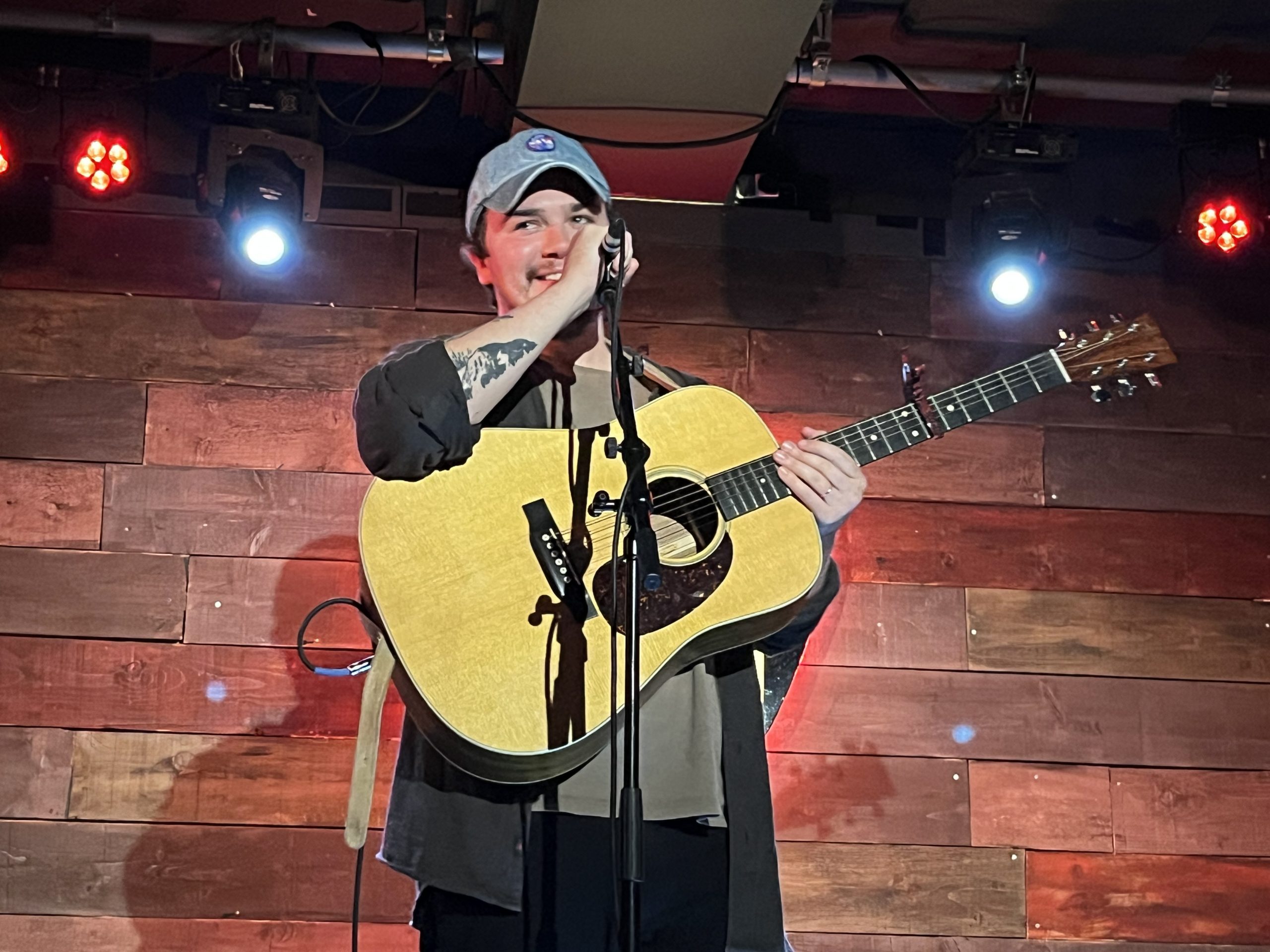
Thanks very much for meeting at the end of your UK tour. You’re still in the middle of a long tour – what’s it been like, touring the new debut album?
It’s been amazing, honestly. It’s been been a lot of things. You know, it’s been so many new experiences that it’s kind of hard to sit down and reflect on all of it all at once. All of my artist friends had told me that once your debut album comes out, it’s hard to explain but it’ll be different. And I was like, well, I can’t see how it would be any different than what I’ve been doing the last two years. But it feels different for sure. It’s kind of hard to put your finger on it, but things are a little bit different. It feels a little bit more solid in a way, I guess.
Absolutely. How’s it been in the UK? Are the audiences similar to those in the US?
No not really similar, just because I get to tour more in the States than I do here, obviously, just because I live over there. So it is a little bit different. When I get over here, it kind of feels like the crowds that I would get in like the first year or so of me touring back at home. Would that make sense? You’ve got to go and hammer down on the markets and then those friends come back and bring their friends the next time you go and all that. But it’s been great. People have really been shown up for me here and I really appreciate that.
That’s great. You did a festival as well, didn’t you? The Long Road Festival? How was that?
It was awesome. It was great, a really cool, small festival. I got to see a bunch of friends there too, so it was an amazing time. I mean, I love playing festivals. It’s one of my favourite kind of gigs, just because I get to see all my other artist buddies and hang out, and the vibe’s always so good because people are there just for music, you know?
Indeed. But you’re looking forward to going home now?
I am very much looking forward to going home, for sure. September is probably the lightest month I have in the rest of the tour. I’m working every weekend, and then I get to be home during the weekdays, which will be really nice because I think I’m around the halfway mark after this UK leg.
Yeah – it’s been a long tour. You must be exhausted!
I’m starting to feel it, for sure. I’m definitely starting to feel it!
Thanks for coming over here and giving us the experience as well. Obviously, the debut album’s out and it’s been very well received. What was it like working alongside co-producers Ruston Kelly and Gena Johnson? Particularly Ruston Kelly would be very familiar to our readers. What was that like?
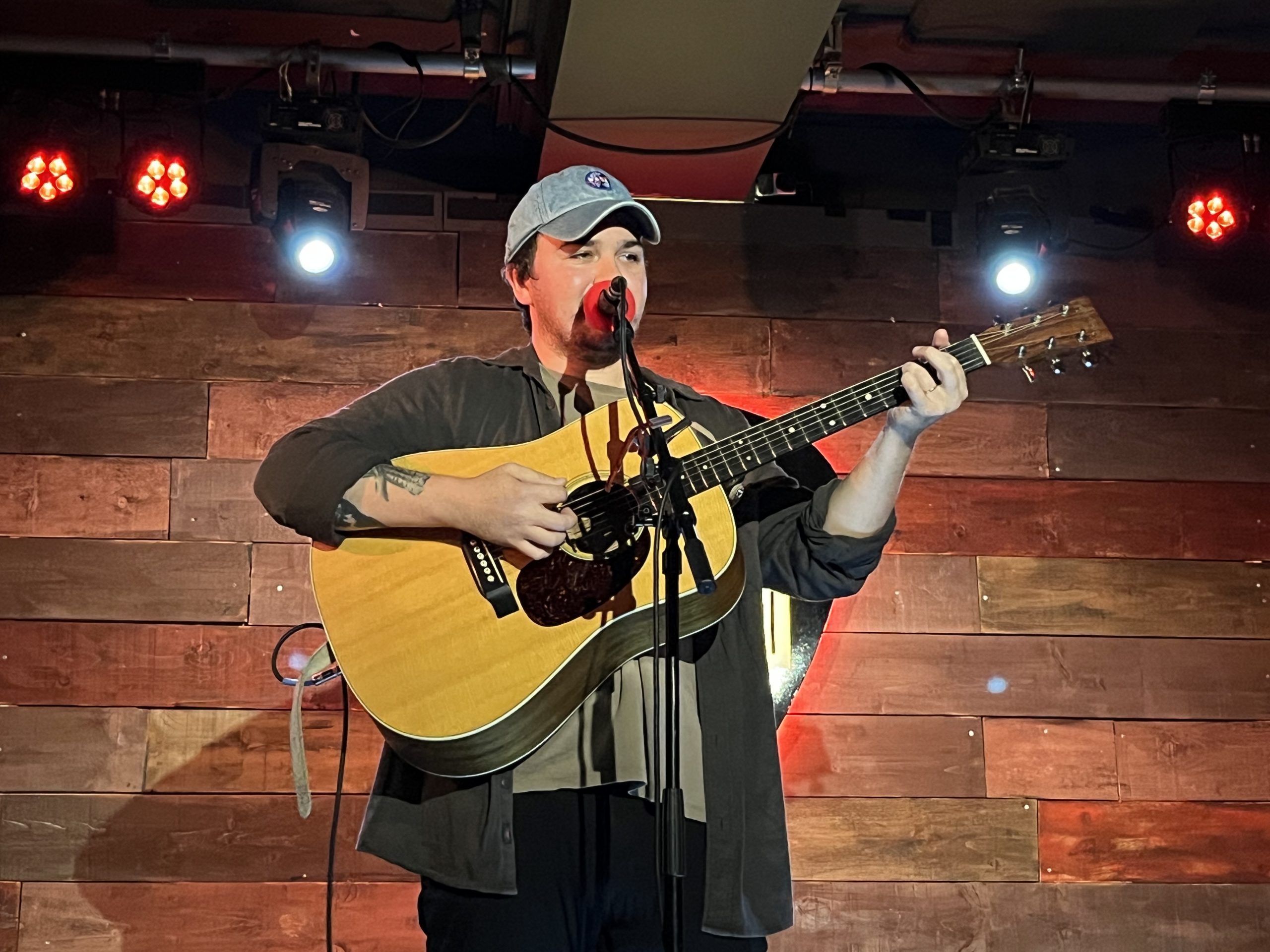
Especially looking back on it now, it was like a dream scenario, honestly. You know, I was just talking about this with my friend the other day, how I don’t know how my first time recording an album would’ve been if I didn’t get to do it with some of my dearest friends. It’s already a pretty intimidating process to decide to do, and then to actually go and do it. You know, it’s a lot.
I mean, there has been decades and decades and decades and decades of other people who have walked this path before me and done the same thing. And when you step into a studio, at least for me, I felt all of that all at once. Just kind of the weight of the decision that I had made to make an album along with every other artist that has ever done it, you know?
That can be a pretty exciting and kind of a crazy feeling at the same time. But having Ruston and Gena in there with me was invaluable. They trusted me and I trusted them, and they know me so well that they were just really there for me the entire time. I could never really explain how amazing it was just to have them there with me.
Especially with Ruston, we spent so much time together when we were writing for the record, and we wrote a couple songs together for it. He’s just always been there to pick up the phone when I have any sort of question about how to do what I’m doing right now. He’s been an invaluable resource and an amazing friend. It makes me excited for the future to work with them again.
Absolutely. It’s clearly a very productive partnership. You mentioned that the it can be an intimidating process when you decide to write that first album. What is your writing and recording process like? What does it look like for you to write a song start to finish?
So, for me, writing, when I’m writing by myself, I tend to get it all done like pretty quickly. Sometimes, it’s like within 15, 20 minutes. The whole song will just kind of come out within an hour. I tend to not write anything down. I just pick up my guitar and I just kind of start. I don’t know what it is – I don’t have a very good memory in terms of like life experiences and things that I should be remembering but with lyrics and writing, I can remember it really well. I can see it being written down in my head like there’s a legal pad in my in my mind and I’m writing it down. I just feel like if I physically start writing it down, then my brain starts jumping ahead and I forget where I’m at. So, I tend to just write only with the guitar in my hand or else at the piano.
If I’m writing with someone else else, sometimes it could be a few hours. Like if I’m writing with Ruston, we could knock it out in like an hour, or it might take a couple hours, or we wrote a song recently that took us like several months. Oh, wow. Because we started it, he went on tour, and then we both rewrote it when we were apart. Then we came back together and we shared notes, and we basically just started from scratch. That’s never happened to me before. So, I feel like I’m still figuring out what my process is, especially with recording too. I was really grateful to have Ruston in there with me, just to kind of like, show me the ropes of how things go and things that work for him, and things that didn’t work for him. I’m still kind of learning what my process is with recording.
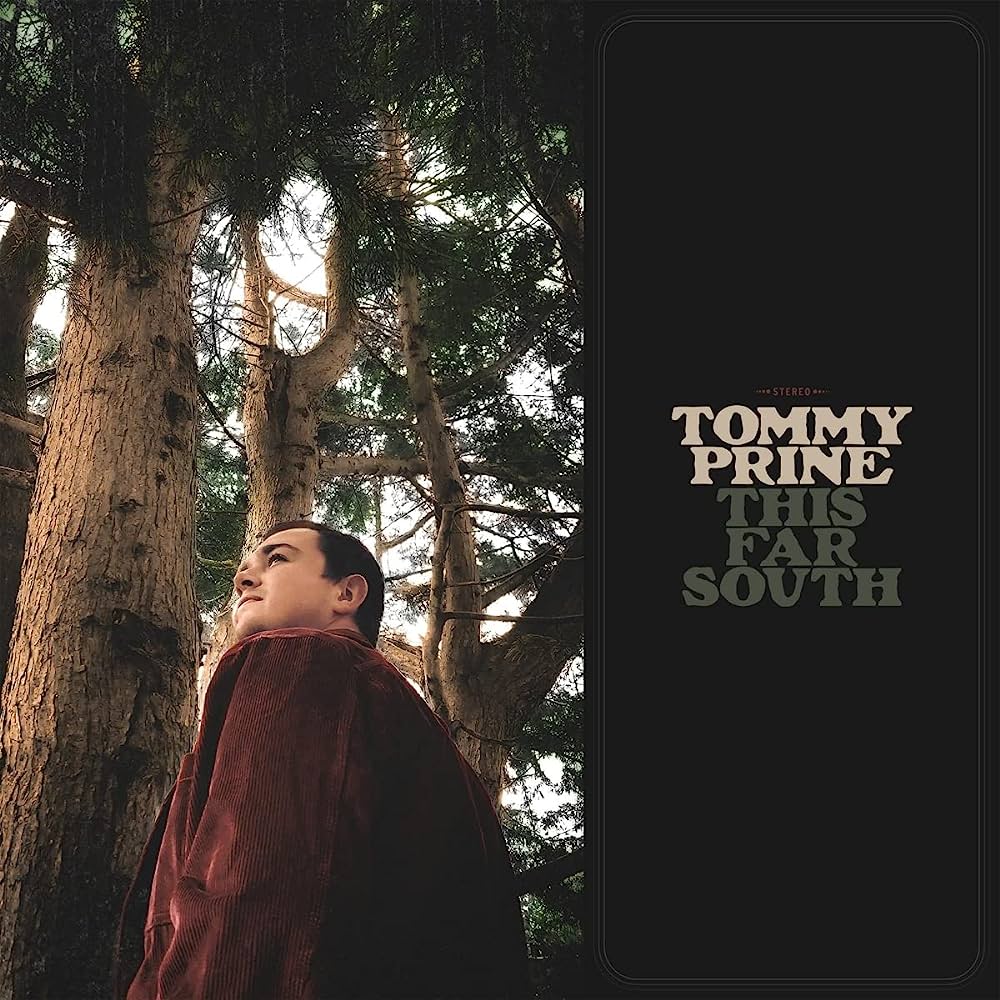
Were there many others who contributed to the album?
Oh, yeah! Sadler Vaden, who’s in the 400 Unit. Incredible, incredible guitar player and also an incredible producer. He was amazing to have in the studio. I mean, there’s a couple songs on there where, you know, I was like almost kind of like worried because it was so good. I was like, how am I gonna find someone that’s going to replicate a Sadler Vaden slide solo on tour, you know? Fred Eltringham was the drummer. He’s an incredible drummer who toured with Sheryl Crow – he is her drummer. He is just a beautiful person and an amazing drummer and really brought a lot of fun to the studio. Eli Baird was on the bass. Then my buddy Jarrad K was on the keys. Jarrad produced Ruston’s first two records, so they worked together really well. It kind of felt like I had a bit of a power team in there, you know, some really heavy hitters in the studio! So, I was definitely in good hands, for sure.
Like a superhero group!
It was actually, yeah. Seriously. It was like the X-Men!
The Justice League of musicians! Oh, wow. What a brilliant experience for your first album as well. To have those people around. That will be something that you reflect on over the years, I’m sure.
Oh, for my whole life, I’m sure.
Thinking about some of the songs, I think one of the most important songs on the album is probably ‘Cash Carter Hill’, because it’s about you finding your own way as an artist. Tell us a little bit about that. What’s it been like finding your path as a musician?
So for that song, Ruston and I took a bit of a writing retreat, out to Mother Maybelle Carter’s home where Jim Carter was born and raised in. It’s a really powerful place. Johnny and June spent a lot of time there together, so there was just like a lot of love and music history in those walls. I wrote that song when we were on a hike in the backyard and there’s this big hill in the back and I ended up calling it ‘Cash Carter Hill’.
I wrote that song, yes, about my journey and about my experience and the context of who I am and the job that I chose, but also I believe that everyone has that one big hill or mountain that you have to climb before you figure out who you are in life. I think that a universal aspect of the human experience is suffering and then triumph and through that suffering or through that obstacle that you got over, you’ve figured out more about yourself and then you can lead with that for the rest of your life.
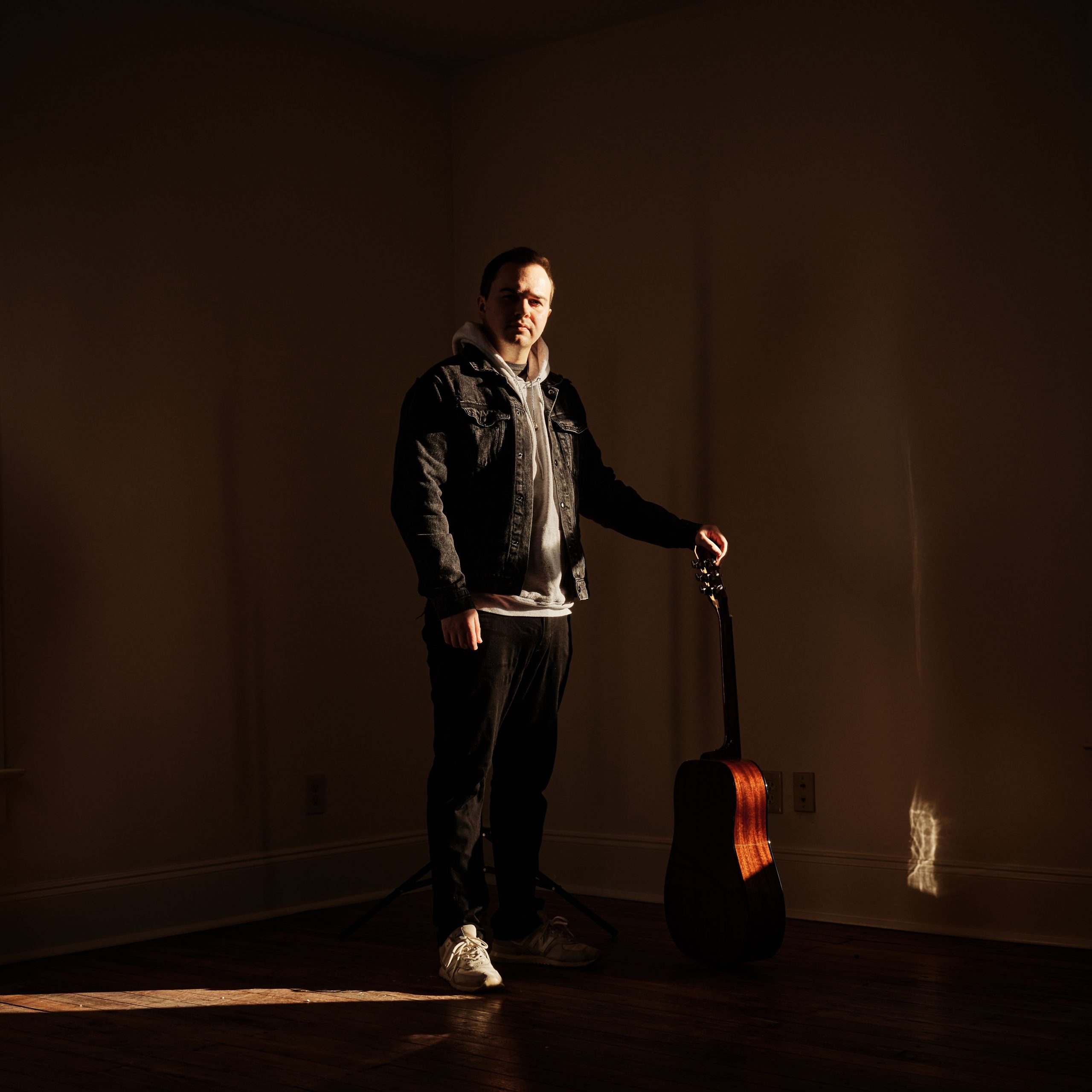
Indeed, it’s a powerful song. You mentioned figuring out who you are as a person, which makes me think of the song ‘This Far south’, the title track, another key song on the album. Can you tell me a bit about the background of that song and what the idea of ‘This Far South’ is?
Yeah, absolutely. ‘This Far South’ and another song on the record, ‘Boyhood’, are the only two songs that I had written several years before I even decided that being a songwriter or an artist was anything that I ever wanted to do. It was just when I used to write for fun. When I was in my early twenties, I just honestly was like partying a lot and partying pretty hard and hanging out with like the wrong folks. You know, the classic making bad decisions growing up kind of thing. It got to a point where I was just pretty disappointed in myself, and I was disappointed in who I was becoming. I realized that I was becoming a person that I just never wanted to be and I wrote a song called ‘This Far South’ as a promise to myself that I would never be that far south ever again. I wanted that to be the focal point of the album because the whole album is about the journey of me growing up and turning into a man. And that was a really big part of my life, when I started taking accountability for my own actions and responsibility for my own disappointments and who I am. Then I started to take stock and think, ‘What is it that I want and how do I get there?’ You know? I feel like that’s the common thread in the whole album. So that’s why I called it ‘This Far South’.
Do you feel like you’ve figured it out yet?
Um, no, but I think in realising that I haven’t figured it out, I’m already one step ahead! You know what I mean? I kind of feel like once you realise, no, you haven’t figured it all out, and you kind of surrender to the idea that you have more to learn, I think that’s one of the best things you can do for yourself.
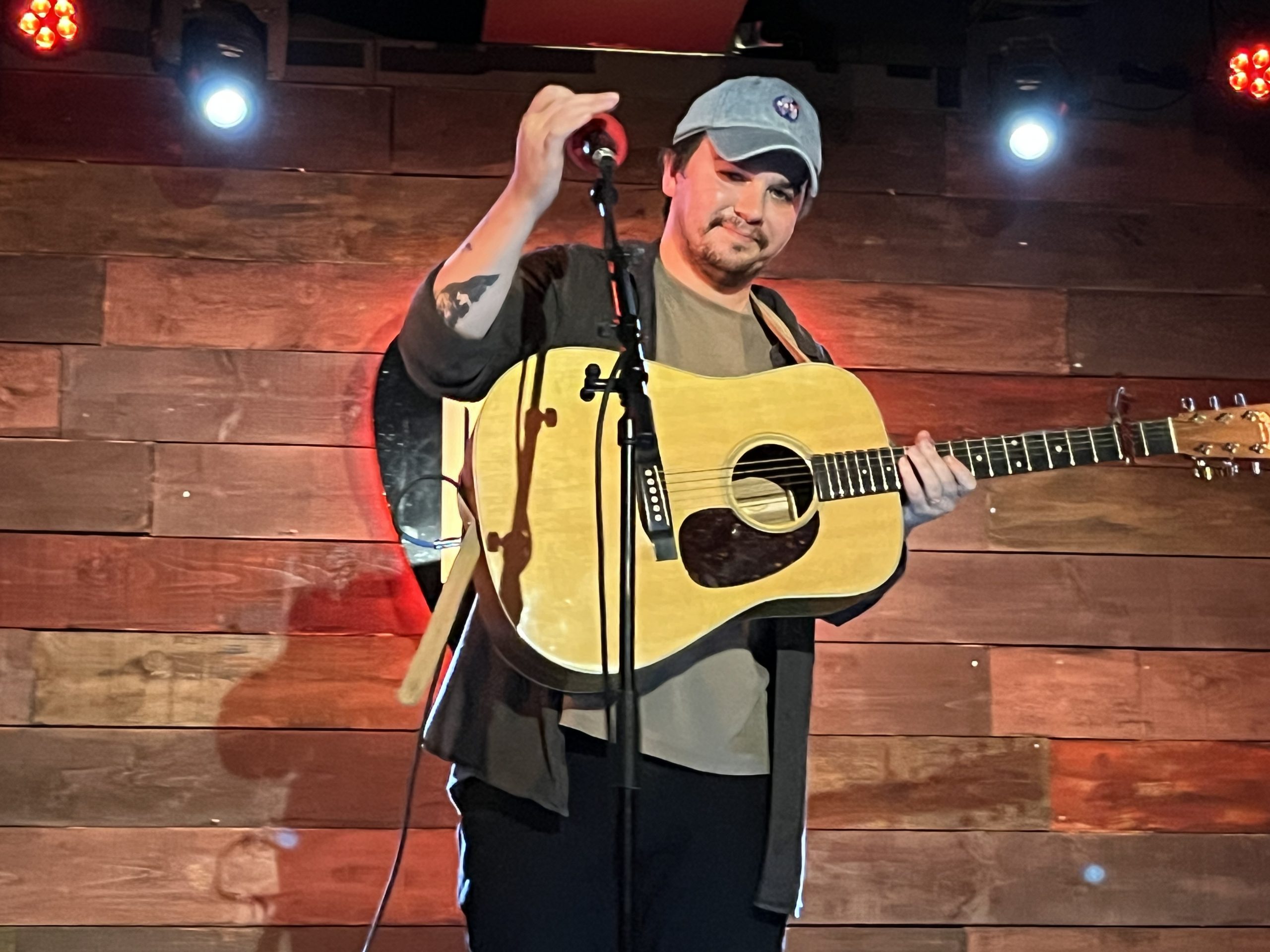
Absolutely. There are a lot of songs on the album that are really personal, like ‘This Far South’. Another theme on the album, if you don’t mind me asking about it, is grief and loss. ‘Letter to My Brother’ sort of speaks of universal loss. There’s also a song that is more based around your dad. Could you tell us a little bit about that theme and how that came out through you music?
Absolutely. So, unfortunately, loss, has been a big theme in my life from my late teens to my early twenties. I lost my best friend to an overdose in 2017, and then three years later I lost my dad. And those are two pretty hard losses to take at, all the way up to like 24, you know? I felt really lost because of that. And angry and all of the emotions, confused. I just, I didn’t really know what was up and what was down. I just felt like I didn’t really know my place in the world. Because of those things that I went through, I think that it put me in such a volatile mind-state that something needed to happen and something needed to change. I didn’t know what it was that was going to help me get to the other side because it was tough, man. When you have that on your mind all the time and everything’s in your face and all your emotions are out of whack. And you miss these people. I’m only 24 at the time and my dad just died. There’s a pandemic. I’m still sad about my best friend passing, and I miss him every day. I’m not really sure how I got guided towards it, but writing ended up being the saviour for me.
Writing was essentially the lens that I could finally face the grief with, if that makes sense. It was the tool that I found that I could use to actually face all of those really difficult emotions, instead of pushing them down or covering them up. Honestly, I think writing songs saved my life in a way. I just think that loss has been a big part of my life and it’d be crazy to ignore that, that part of my life. I felt with ‘This Far South’, I needed to lay it all out there. So, that had to be on the album, in my opinion.
Those personal songs, are they harder to write because what you’re writing about hurts? Or are they, in a way, easier to write because they’re cathartic and because those feelings flow out naturally from you?
Both? I think it is easier in the way that you describe it. It is that it’s so cathartic is that kind of, once you start, when you give yourself the permission to start and of let it all out, then you’ll be surprised how much it really does like come out. And then, yeah, it’s hard, obviously, just because there is an emotional response when you start really digging in deep and saying the things that you’ve wanted to say. Also, I don’t know, I’ve always had a pretty easy time going through those kind of emotions, maybe because I’ve felt them a lot in very heavy ways early in my life. I know, ultimately, that it’s good to get those out because they’re coming out one way or another, and it’s kind of up to you how those come out, you know? Because, if you hold them in for a while, you’re gonna lash out on someone, or you’re going to make a horrible mistake or say something you don’t actually mean? Grief comes out in really ugly ways unless you confront it. That’s true. So, I think that, for me, writing was really the only way I could do it.
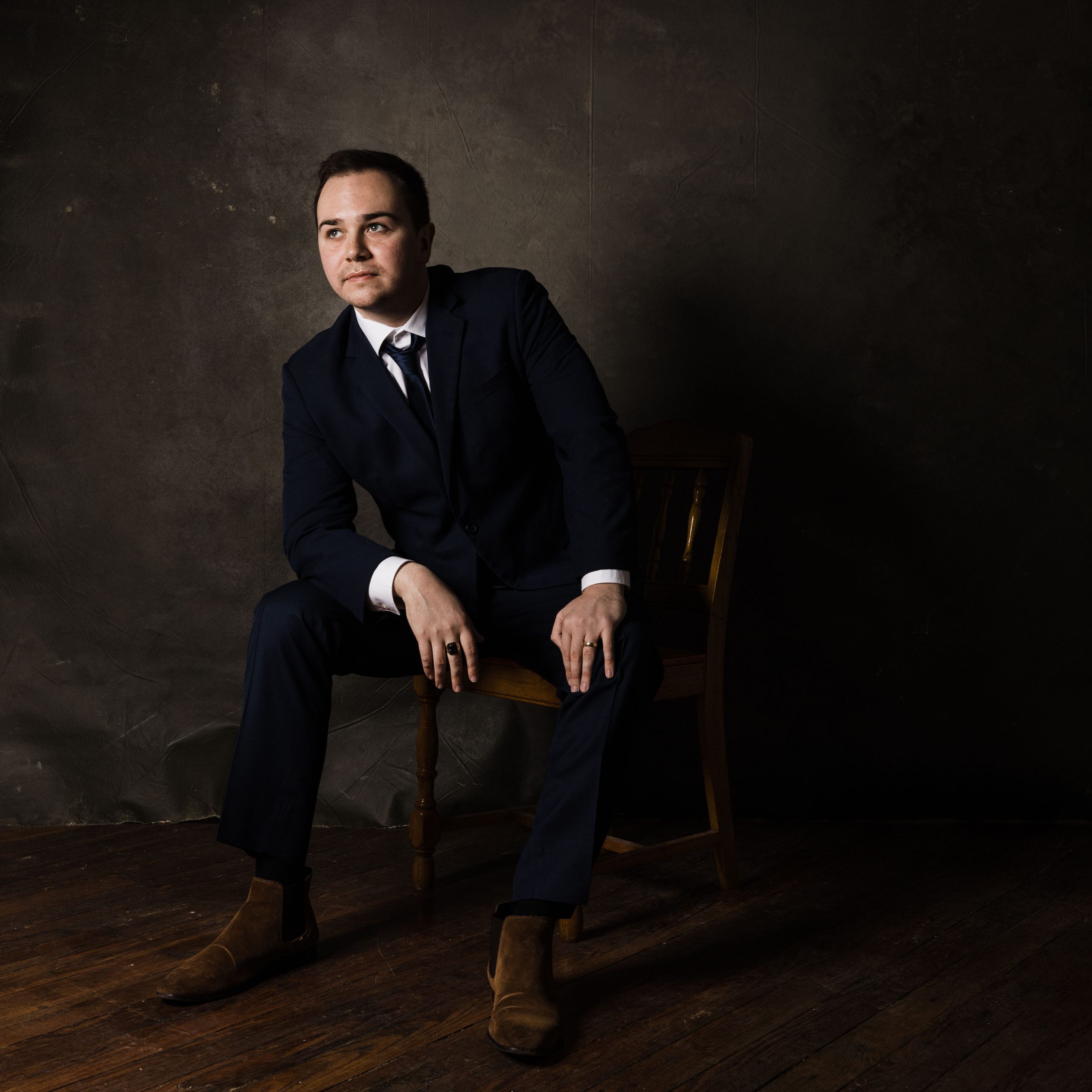
I can imagine. I think a lot of artists feel like that when they’ve got strong emotional things that they’re responding to in their lives. When you’ve got a song as personal as ‘By the Way’, what’s it like performing that to an audience? What sort of reaction do you get from the listeners in a crowd?
I definitely give my all when I’m performing and when I’m playing a song like that, you know. There is kind of like a fine line between giving my all and then also holding back a little bit. Because if I really, really, really go out there missing my dad, I probably won’t be able to get through the song. It has been a blessing and but it’s also been kind of difficult, seeing all the pain that I see in people’s eyes that maybe they weren’t expecting to feel that that night, you know? When I sing that song, I can look out in the crowd and I can tell you exactly who else lost their dad, like, specifically lost their dad. It’s a different kind of look in their eyes and I can see it in them. And I hate that people are feeling that. I’m a very empathetic person, so I kind of take all that on. But at the same time, I think it’s good to have someone sharing their experience with something like that because you know, if you lose a parent, in the back of your head, that everyone loses their parents at some point. But it’s such a traumatic thing that it can be isolating in a weird way. Because it’s a hard thing to go through, it can easily be an isolating thing. So, I feel like if I’m up there on stage singing about my experience and other folks that have gone through that, or maybe they lost their dad 10 years ago, but they never really got some sort of confirmation that it’s okay to be sad about it, I’d like to think that I’m doing my part.
Indeed you are, I can confirm. Of course, when you talk about your dad, specifically, you’re talking about a legend in the world of music. What’s it like having that presence behind you, knowing how loved he was, how respected he was around the world?
I mean, I think it was something that I had to confront day one before I even decided to say, ‘Yes, I’m gonna be an artist.’ I’m proud of my name. I’m proud of my family. I’m really proud of my dad, and I’m never going to pretend like I’m someone I’m not just because he was some amazing, big songwriter. I can honour and respect that. I don’t feel like it is like a looming thing. It feels like I can like walk next to it and still be my own man. I don’t think that my dad spent his whole life making music and touring so that I couldn’t. I think he did it so that, if I wanted to, I could. And that’s exactly how I feel about it. I feel like he’s with me while I’m doing this and I feel closer to him, you know? It’s a positive presence. People are entitled to their opinions but I feel like if you come to my show, you’ll realise that it’s not John Prine Jr. No, you’re, you’re getting the Tommy Prine show, you know?
Absolutely. Actually, that brings us on to talking about your style of music. People like to pigeonhole and talk about genres. I’m writing for Americana UK, right? It’s in the name! But I think the sounds on your album are really very varied. ‘Mirror and a Kitchen Sink’ sounds completely different from ‘By the Way’, ‘Reach the Sun’ or ‘Cash Carter Hill’. Even within a song like ‘Cash Carter Hill’, halfway through it becomes a completely different song. So, what would you say about your style of music and what genre you might be playing within to somebody who didn’t know your music?
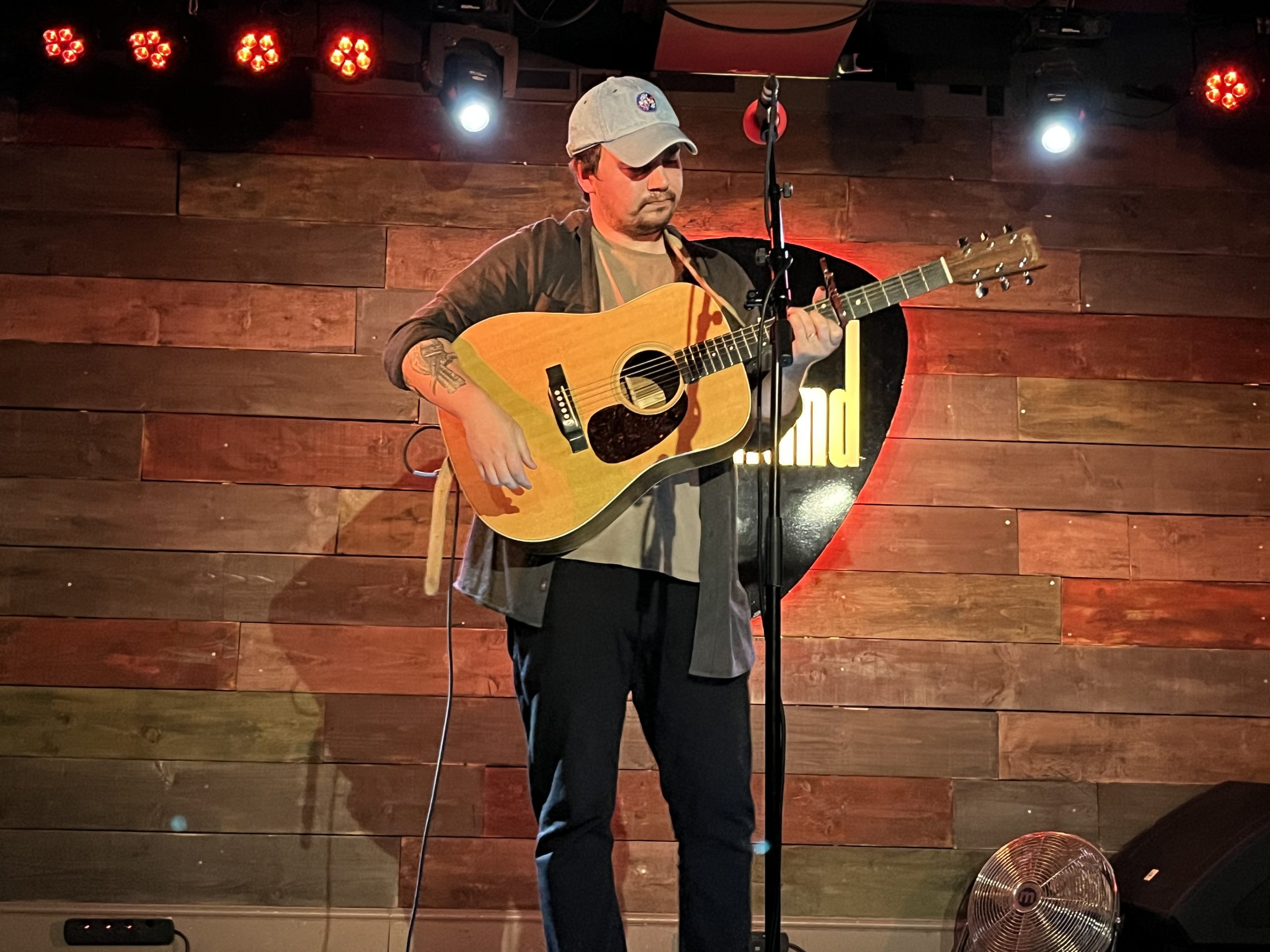
I don’t know. I guess I would just say it’s alternative, just because it is kind of a mashup between everything. I love rock music. I also love folk music. I also love punk. I love kind of weird sort of indie-folk stuff. I like all these different things and I felt like I was just trying to cram everything that I loved into this one little album. Maybe on album 2, 3, 4, 5, I’ll get like a little bit more specific with one of those sounds. Honestly, I want to make a record of everything I want to make, like a country album. I want to make it a straight up Americana record. I want to make an indie sort of folk thing. I want to make a rock record. I want to make all these things but I just think I couldn’t decide which. Also, the songs lent themselves to the sound that Ruston and Gena ended up producing for it, you know? I think they’re just, like you said, deeply personal songs, and I think they came from a very deeply personal and new space. So I just did whatever felt right. That’s why there’s like ‘Elohim’ and then ‘Some Things’ and then ‘Letter to My Brother’ all in the same album.
Although they’re quite different in their sound, they all actually hold together remarkably well because they do have the themes that run through and also your voice runs through. I think it’s a great debut album. You wanted to be your own man in music, it very much is what you’ve achieved – you found a different sound.
Oh, thank you. Thanks, man.
It’s your sound and whatever you want call it doesn’t really matter. You mentioned lots of styles that inspire you, rock and punk and folk and so on. As a final question, are there any artists or bands out there that you are listening to at the moment who inspire you, who our readers might be interested in?
Oh, man. I think artists that people should definitely keep their eye on are Jonathan and Abigail Peyton, a married couple that I met just out on the road. I played a few shows with them and they are just beautiful people and make amazing music. They got to open for Zach Bryan recently and they opened for me in Georgia. They’re just really genuinely amazing people, great songwriters, and they sound so good together. So I think give them a checkout for sure. It’ll just be under Jonathan Peyton.
Brilliant, I shall do that. Thank you very much and good luck with the show and the rest of the tour.
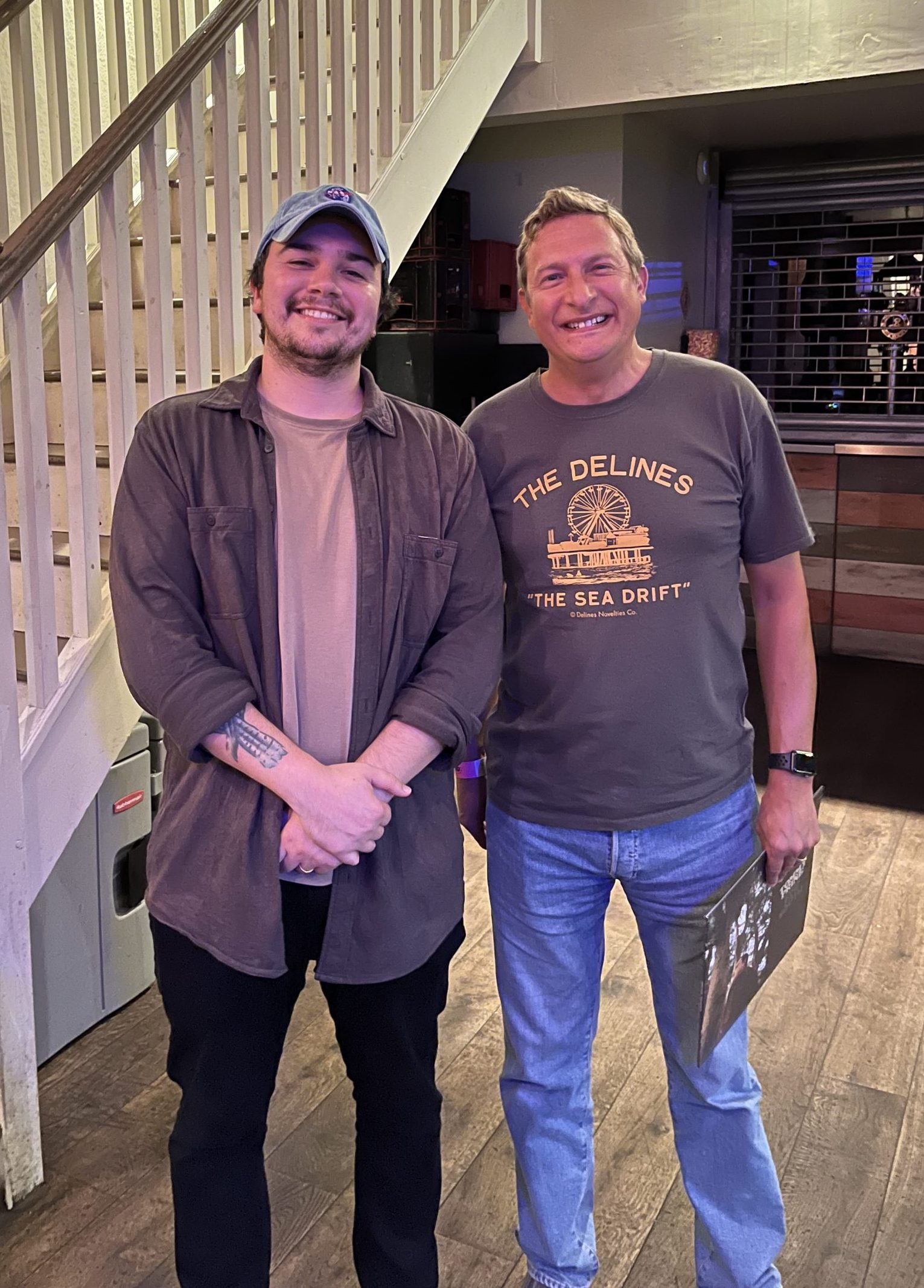
https://www.youtube.com/watch?v=USRvOa5nxtE
https://www.youtube.com/watch?v=kyIQ0WqATtQ
https://www.youtube.com/watch?v=ZJwkTAFQr8w
https://www.youtube.com/watch?v=bx34n56pOpU


